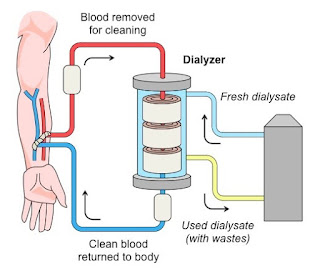Weight loss surgery in India.
What is weight loss surgery?
Bariatric surgery is a surgery that is designed to lead to weight loss. There are actually four different types of bariatric surgical procedures that can be done to help patients achieve weight loss. These procedures will either shrink the stomach so that the patient can only eat small amounts of food at a time or will change the way that the digestive system can absorb the food the patient eats.
Type of weight lose surgery.
·
Roux-en-Y gastric
bypass.
·
Laparoscopic
adjustable gastric banding.
·
Sleeve gastrectomy.
·
Duodenal switch with
biliopancreatic diversion.
advantages
·
Faster initial weight
loss
Disadvantages
Pros and Cons
of Pregnancy After Weight Loss
Disadvantages
Fertility Can Increase
Women who experienced fertility problems before surgery often
report regular ovulation after surgery for the first time in years, according
to the Journal of Obstetric, Gynecologic, and Neonatal Nursing.In addition,
fertility can increase for patients with polycystic ovarian syndrome (PCOS),
who have reportedly resolved their reproductive issues. However, accidental
pregnancies can increase when reproductive challenges dissolve, so be sure to
look into your birth control options prior to surgery and to follow through
with any plan until you are ready to conceive.
Watch Your Nutrition
Bariatric
surgery can affect the way in which your body absorbs nutrients from the food
you consume. Good nutrition is essential during pregnancy, so women who have
undergone weight loss surgery must pay particular attention to nutritional
deficiencies and taking proactive steps to better care for themselves.
Particular
deficiencies to watch out for include:
·
B12
·
Iron
·
Calcium
·
Vitamin D
Because
your post-surgery diet may be limited, supplementation is vital to maintaining
good health, and doubly important if you are looking to conceive or are already
pregnant. A registered dietitian can help you see to it that you and your child
are getting the Nutrition you both require, particularly if you experience
nausea in the early months of your pregnancy. Nutrition you both require
Wait 18 Months
Immediately
after bariatric surgery, your body undergoes significant weight loss and
nutritional changes, making this not the best time to conceive. However, after
18 months, your weight will be closer to stabilized and ready to begin the very
active process of growing baby. Ideally, you should achieve your goal weight
before becoming pregnant in order to be able to provide your growing child with
enough nutrition.
Discuss with Your Doctor
Not
all OBGYN physicians know how to provide care to women who have undergone
bariatric surgery. If you have undergone or plan to undergo weight loss
surgery, discuss with your healthcare provider as early as possible. Women who
have experienced weight loss surgery may require Cesarien delivery, so the more
prepared you are, the better.
Complications Are Reduced
According
to a study from the journal Obstetrics and Gynecology, pregnancy-induced
hypertension and gestational diabetes rates were the same in women who had
undergone bariatric surgery as those who had never been obese or undergone
surgery.
However,
complications can occur even in healthy women for a wide variety of reasons, so
you may want to treat your weight loss surgery as a reason to keep a particular
eye on your health during this time of change.
Changing Body-Image
Weight
loss surgery and pregnancy have one major similarity: both affect the way you
feel in and about your body. After undergoing weight loss surgery, you may be
looking forward to a time when your waistline shrinks, rather than grows.
Consider that pregnancy can be difficult on your self-esteem if you expected to
fit into skinny jeans within nine months. Anticipating these feelings and
timing your pregnancy accordingly can help you achieve your goals and make
space in your life for that little, special someone!
Pregnancy
after weight loss surgery requires a balancing act of nutritional and emotional
care. While your health will improve after surgery, your body will need time to
heal and drop weight before it is advisable to conceive. If you are thinking
about conceiving and are also planning a surgery or are now in recovery, speak
with both your surgeon and an OBGYN about the best course of action to ensure a
positive, healthy outcome.
Medical complications of obesity.
· Coronary heart disease.






Comments
Post a Comment